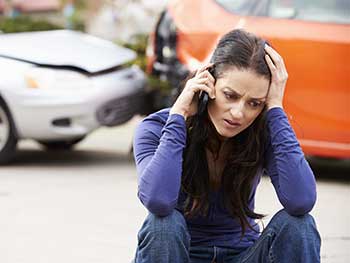
We like to think that we have a certain amount of control over ourselves – how we think, how we feel and how we react to the things around us. In many aspects of our personal lives, we do have control. But our subconscious minds can be much more complicated and powerful than we realize.
Recent research has shed light on one way our bodies respond to traumatic events. Specifically, one study examines how children are affected physically and emotionally after being involved in a vehicle crash. Before we look at the results of this study, let’s understand how our biology is shaped by traumatic events.
Understanding Post-Traumatic Stress Disorder
We are hardwired to respond to certain situations in ways that are simply beyond our control. Consider the reflex test that doctors give you, the test where they strike below your knee and your leg goes flying without any direction from your conscious mind. Likewise, our minds are conditioned by the experiences we’ve had and our brains then use certain defense mechanisms to protect us from future harm.
Post-traumatic stress disorder is like the response we have to the reflex test. Built into our biology is a system that responds to threatening situations. It is most widely associated with soldiers at war. During deployment, a soldier experiences traumatic events and when they return from battle, even when they are safe from the dangers of the battlefield, their body triggers a physical and mental response when it perceives a threat. It is not a conscious decision, but a deeply embedded defense mechanism that, at one point in human evolution, was vital for our survival.
Post-traumatic stress disorder is not exclusive to those in a war setting. Any person who has experienced trauma can develop PTSD. One of the most common traumatic events that we experience is a vehicle crash. PTSD is usually short-term, but for some vehicle crash victims, especially younger people, it can be a condition that lasts for years after a crash.
How PTSD Affects Children After a Crash
A recent U.K. study found that among children ages 8 and over, 10 to 30 percent involved in collisions had PTSD. After three years post-collision, 17 percent of those children showed signs of PTSD. Parents of children in the study couldn’t explain the condition that was affecting their child, even though many of them had also experienced PTSD.
The study found that parents who had PTSD from a collision were more likely to have children who had PTSD, though their child’s PTSD might last significantly longer. This research is important largely because trauma among children isn’t studied to the degree it is among older people.
When a young person experiences PTSD from a vehicle crash, it can affect their development in significant ways, especially if loved ones can’t identify the problem. Some of the most common symptoms of PTSD include anxiety, depression, sleeping problems and emotional problems, to name a few.
A crash can have consequences that go well beyond physical harm, and studies like this provide tremendous insight into the scope of the problem. As the number of vehicle crashes continues to rise in the United States, it’s vital that we raise our awareness of all the ways we can continue to suffer the effects from one single crash.
If you have been involved in a crash caused by someone else’s negligence, contact Steven H. Heisler to learn more about your legal options. Reach us today by filling out our online form or calling us at (410) 625-4878 to schedule a free consultation.
